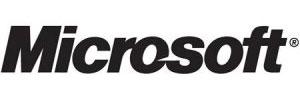Sorry, Devs: Windows Phone Might Be Dying
Microsoft’s latest quarterly results painted a dark picture for Windows Phone, the company’s smartphone platform. Roughly 4.5 million Lumia devices sold in the quarter—a significant decline from the 10.5 million sales during the same period last year. For comparison, research firm IDC reported that smartphone vendors shipped 399.5 million smartphone units during the fourth quarter of 2015. If you take that number at face value, back-of-the-envelope math suggests that Microsoft managed to grab a little more than 1 percent of all smartphones sold last quarter. (IDC itself grouped Microsoft’s share of the market under “Others” in its charts.) Of course, Windows Phone has been struggling for some time. A late entrant into the smartphone OS wars, it had difficulty gaining traction against the combined forces of Apple’s iOS and Google Android. After current Microsoft CEO Satya Nadella took the helm of the company in early 2014, he repeatedly promised to support phones in the short term, while leaving his broader mobile strategy deliberately vague. In mid-2015, Microsoft took a $7.6 billion “impairment charge” related to its earlier acquisition of Nokia Devices and Services, which gave it the Lumia brand. Since the beginning of Windows Phone, Microsoft has tried to attract developers to the platform. But with most developers (with the exception of the big shops) strapped for time and resources, it’s an uphill battle to convince them to develop for a third platform when iOS and Android already deliver an audience (with the accompanying revenues). When early versions of Windows Phone failed to gain substantial traction among the developer community, it created a vicious cycle; nobody wanted to build for a platform that nobody was building for, or using. Following the announcement of Windows 10, Microsoft began touting the concept of universal apps, which work on any Windows-based device, from PCs down to smartphones. By making development for the Windows platform more of a value proposition, universal apps were supposed to solve the developer conundrum. But as with most theories that look good on a white-board, questions remain about how effectively apps built for a PC will scale down to a phone, and vice versa. According to The Verge, Microsoft may attempt a Hail Mary pass by rebranding its Windows Phone devices as Surface Phones, in light of the Surface brand gaining some traction among consumers. But without apps, it’s an open question whether a name change will translate into increased sales.

